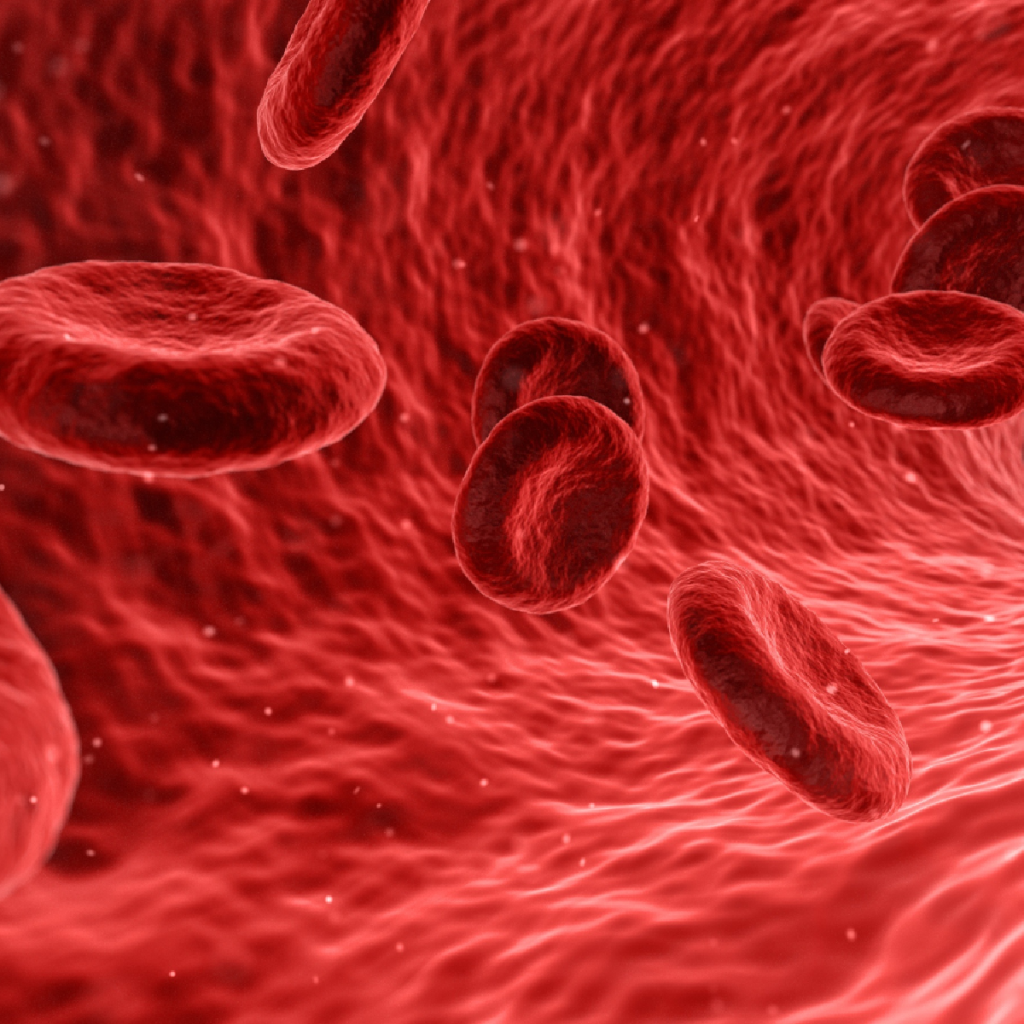Can Nootropics Improve Memory?
08/08/2023

Nootropics have gained a lot of attention in recent years for their potential to improve memory and cognitive function. These brain-boosting supplements are becoming increasingly popular among students, professionals, and individuals looking to enhance their mental performance. But what exactly are nootropics? How do they work in the brain? And are they truly effective in improving memory? In this article, we will explore the science behind nootropics and their impact on memory enhancement, as well as address potential risks and side effects associated with their use.

Understanding Nootropics
Are you looking to boost your cognitive function? Nootropics might be the answer you've been searching for. Also known as "smart drugs" or "cognitive enhancers," nootropics are substances that are believed to improve cognitive function, particularly memory, concentration, and focus. These substances can include a wide range of natural compounds, such as herbs, vitamins, and minerals, as well as synthetic drugs designed to enhance brain function.
The History of Nootropics
The use of substances to enhance cognitive function dates back centuries. Ancient civilizations, such as the Egyptians and the Greeks, were pioneers in exploring natural remedies to improve memory and mental performance. They discovered the power of herbs like ginkgo biloba and Bacopa monnieri, which are still widely used today. These ancient remedies laid the foundation for the development of modern nootropics.
However, it was not until the 1960s that the term "nootropics" was coined by Romanian psychologist and chemist Dr. Corneliu E. Giurgea. Dr. Giurgea defined nootropics as substances that enhance learning and memory without causing significant side effects. His groundbreaking work paved the way for further research and the development of new nootropic compounds.
Different Types of Nootropics
Nootropics can be classified into various categories based on their mechanisms of action and effects on the brain. Each category offers unique benefits and targets different aspects of cognitive function. Here are some common types of nootropics:
- Racetams: This class of compounds includes popular nootropics like piracetam and oxiracetam. Racetams work by increasing the activity of neurotransmitters in the brain, such as acetylcholine, which are crucial for memory and cognitive function. They are known to enhance learning capacity and improve overall brain health.
- Natural Nootropics: Nature has provided us with an abundance of cognitive-boosting substances. Natural nootropics are derived from natural sources, such as herbs and plants. Examples include ginkgo biloba, Bacopa monnieri, and Panax ginseng. These natural wonders often possess antioxidant and anti-inflammatory properties, which can support overall brain health and improve cognitive performance.
- Cholinergics: Acetylcholine, a neurotransmitter in the brain, plays a key role in memory formation and retrieval. Cholinergics work by increasing the production or availability of acetylcholine. Alpha-GPC and Huperzine A are examples of cholinergic compounds that have shown promising results in enhancing memory and cognitive function.
- Ampakines: If you're looking to supercharge your memory and boost synaptic plasticity, ampakines might be the nootropics for you. Ampakines are synthetic compounds that enhance the activity of AMPA receptors in the brain, promoting neuronal communication. By improving memory formation and consolidation, ampakines have the potential to unlock your cognitive potential.
As the field of nootropics continues to evolve, researchers are constantly discovering new compounds and exploring their potential benefits. Whether you're a student looking to improve your academic performance or a professional seeking a cognitive edge, understanding the different types of nootropics can help you make informed decisions about which ones may be right for you.
The Science Behind Nootropics and Memory Enhancement
Nootropics, also known as "smart drugs," have gained popularity in recent years for their potential to enhance memory and cognitive function. These substances exert their effects on the brain through various mechanisms, providing a fascinating insight into the intricate workings of our most complex organ.

How Nootropics Work in the Brain
One common mechanism through which nootropics enhance memory and cognitive function is by increasing blood flow and oxygen supply to the brain. This improved circulation supports neuronal function and energy metabolism, ultimately leading to enhanced memory formation and retrieval. Imagine your brain receiving a fresh supply of nutrients and oxygen, like a well-nourished garden flourishing with vibrant blooms.
Another mechanism by which nootropics exert their effects is by modulating neurotransmitters, the chemical messengers in our brain. Neurotransmitters such as acetylcholine, dopamine, and serotonin play crucial roles in memory and learning processes. Nootropics can increase the availability or activity of these neurotransmitters, thereby enhancing brain function and memory performance. It's like giving a boost to the brain's communication network, allowing for smoother and more efficient transmission of information.
Nootropics and Neuroplasticity
Neuroplasticity, the brain's ability to adapt and change in response to experiences and environmental stimuli, is a fundamental process for learning and memory formation. Some nootropics have been found to promote neuroplasticity by stimulating the growth of new neurons and enhancing synaptic plasticity. Synaptic plasticity refers to the brain's ability to form new connections between neurons, allowing for the creation of new pathways and the strengthening of existing ones. It's like expanding the network of roads in a bustling city, providing more routes for information to travel and increasing the brain's capacity for learning and memory.
The Role of Nootropics in Memory Retention
Memory retention is a vital aspect of memory function, and nootropics may play a significant role in improving this process. By enhancing the consolidation and reconsolidation of memories, nootropics help strengthen the neural circuits associated with memory storage. It's like reinforcing the foundation of a building, ensuring that memories are securely stored for long-term retention. This enhanced memory retention can have profound effects on our ability to recall information and make connections between past experiences and present situations.
In conclusion, the science behind nootropics and memory enhancement is a captivating field of research. These substances work through various mechanisms, such as increasing blood flow and modulating neurotransmitters, to enhance memory and cognitive function. Additionally, nootropics can promote neuroplasticity and improve memory retention, further highlighting their potential as tools for optimizing brain performance. As our understanding of the brain continues to expand, so too does our ability to unlock its full potential with the help of these fascinating substances.
The Effectiveness of Nootropics in Memory Improvement
Nootropics, also known as smart drugs or cognitive enhancers, have gained significant attention for their potential to improve memory and cognitive function. While anecdotal evidence and individual testimonies suggest their efficacy, scientific research on the topic is still limited. However, some studies have shown promising results.
Clinical Studies on Nootropics and Memory
A meta-analysis published in the journal Psychopharmacology reviewed several studies on the effects of nootropics on cognitive function, including memory. The analysis concluded that certain nootropics, such as piracetam and ginkgo biloba, had a positive impact on memory performance, although the magnitude of the effect varied across studies.
Another study conducted at a university examined the effects of a specific nootropic on memory in a group of participants. The results showed that those who took the nootropic experienced improved memory recall compared to the placebo group. This suggests that certain nootropics may indeed have a beneficial effect on memory.
Furthermore, a long-term study conducted over a period of six months explored the effects of nootropics on memory in older adults. The findings revealed that consistent use of specific nootropics led to a significant improvement in memory function, particularly in tasks related to working memory and verbal recall.
Personal Testimonies and Experiences
Many individuals report experiencing improvements in memory and cognitive function after taking nootropics. These personal testimonies can provide valuable insights into the potential benefits of these substances. However, it is important to note that individual experiences can vary, and the placebo effect may play a role in perceived improvements.
One individual shared their experience of using a nootropic stack, a combination of different nootropics, to enhance their memory and focus. They noted that after a few weeks of consistent use, they noticed a significant improvement in their ability to recall information, concentrate on tasks, and retain new knowledge.
Another person shared their journey of incorporating nootropics into their daily routine to combat memory decline associated with aging. They described how the use of specific nootropics not only improved their memory but also enhanced their overall cognitive abilities, allowing them to stay mentally sharp and engaged.
Debunking Common Myths About Nootropics
There are several misconceptions surrounding nootropics and memory enhancement. One common myth is that nootropics can instantly transform individuals into geniuses or improve memory overnight. In reality, the effects of nootropics are often subtle and may require consistent use over time to notice significant improvements.
Additionally, it is crucial to debunk the idea that nootropics are a magical solution for memory problems. While they may offer potential benefits, maintaining a healthy lifestyle, engaging in cognitive exercises, and getting enough sleep are also essential for optimal memory function.
Another myth is that nootropics are only beneficial for individuals with existing memory impairments. In fact, research suggests that nootropics can also enhance memory and cognitive function in healthy individuals, providing an extra edge in academic or professional settings.
It is important to approach the topic of nootropics with realistic expectations and to consult with a healthcare professional before starting any new supplement regimen. They can provide personalized advice and guidance based on individual needs and health conditions.
Potential Risks and Side Effects of Nootropics
Understanding the Risks
Like any supplement or medication, there are risks associated with the use of nootropics. It is important to approach their use with caution and consult with a healthcare professional before starting any new cognitive-enhancing regimen.

One risk is the potential for drug interactions. Nootropics may interact with other medications, especially those that act on the central nervous system. It is crucial to inform your healthcare provider about all the medications you are taking to avoid any unwanted interactions.
Common Side Effects
Nootropics are generally considered safe when used as directed. However, some individuals may experience side effects. Common side effects of certain nootropics include headaches, gastrointestinal issues, and sleep disturbances. These side effects are usually mild and tend to subside over time.
Long-Term Implications of Nootropic Use
The long-term implications of nootropic use are still not fully understood. Some concerns have been raised regarding the potential for dependence or tolerance with prolonged use. More research is needed to determine the optimal dosage, duration, and safety of long-term nootropic use.
In conclusion, nootropics have generated significant interest as potential tools for memory improvement. While scientific research on their efficacy is still limited, anecdotal evidence and some studies suggest that certain nootropics may have beneficial effects on memory and cognitive function. However, it is important to approach their use with caution and consult with a healthcare professional to ensure safety and optimize potential benefits.

 Back to Blog
Back to Blog